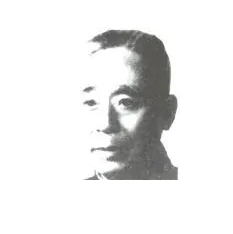Wang Yuting

Wang Yuting (1872-1951), founder of Wang School Pipa (Shanghai School Pipa). Ming Min, nickname Ziyi. Anhui Xiuning people. In his early years, he was engaged in business, and he loved music. He first learned about Xiao and Sanxian. In the 26th year of Emperor Guangxu's reign (1900), he learned pipa from his neighbor Wang Huisheng, and successively sent pipa to Zhejiang Li Fangyuan, Yin Jiping, Ni Qingquan, and Chen Zijing to learn pipa.
Good at playing the pipa civil and military suite. He once processed and polished the "Xunyang Pipa", which was passed down by Li Fangyuan, and renamed it "Xunyang Night Moon", also known as "Xunyang Song". , which makes the tune more simple, and is called "Wang School Pipa".
The pipa handwritten score "Wang Yuting Pipa Score" compiled by him mainly contains "Huaiyin Pingchu", "Yu Lun Pao", "Snow White Snow", "Song on the Forbidden City", "Xiao Drum in Sunset", "Moon's High". ", "Lantern Moon Crossing", "Qinglian Yuefu" and other songs. Among them, "Yangchun Baixue" is the representative work of the Wang School of Pipa.
In 1900, he learned pipa from his neighbor Wang Huisheng in Shanghai, and often went to watch the performance of Zhou Yonggang, a famous pipa master at that time.
In 1920, the Datong Music Club invited Wang Yuting to teach Pipa. Later, some Chinese music clubs invited him to be a Pipa teacher, and his reputation became great, thus creating an important modern Pipa school, the Wang School. Wang Shi compiled the performance score (gong-chi score) from the ancient pipa score based on the actual performance of the flower sounds, and they were all copied by hand and sent to the students. It has become a precious calligraphy. Later, most of the famous pipa masters came from Wangmen, such as Li Tingsong. , Wei Zhongle, Sun Yude, Cheng Wujia, Liu Yaozhang, Jin Zuli, Chen Tianle, Zhang Pingzhou, Chen Yonglu, etc.
Wang's main contributions to the pipa include: in terms of skills, he used the upper chuan for the first time, thus laying the foundation for the right-handed structure of the contemporary pipa; The hand-shaped frame of the playing can be said that Wang played a linking role in the development of pipa skills. In terms of music, he does not stick to traditional playing methods, but carefully revises the ancient score to make it more concise. For example, he adapted 10 sections of "Yangchun Ancient Music" in "Li's Book" into 7 sections. The whole piece has a new look and a compact structure. , has now become a widely popular pipa song. He also edited and polished "Xunyang Pipa", making the music more simple and elegant. Now the national orchestral piece "Spring River, Flowers and Moonlight Night", which is now well-known in domestic and foreign music circles, was originally adapted based on his version. In "House of Flying Daggers", he created the fingerings such as "Phoenix Nodding" and "Duo Luozi", which are now the most widely circulated versions.
In addition, his pipa songs "Shou Ting Hou" and "Crossing the Sea to the East" adapted from the gong and drum suite "The Moon and the Light" are unique pieces of the Wang School. Wang's biography was collected by the Central Conservatory of Music and compiled into "Wang Yuting's Pipa Score" in 1980.
Similar artist
Involving musical instruments
Involved portfolio
Involved news
Popular artists
- 01 Zhang Xiuyan
- 02 A Shicai
- 03 Feng Yu
- 04 Zhang Gaoxiang
- 05 Zhu Changyao
 渝公网安备 50010702504639号
渝公网安备 50010702504639号